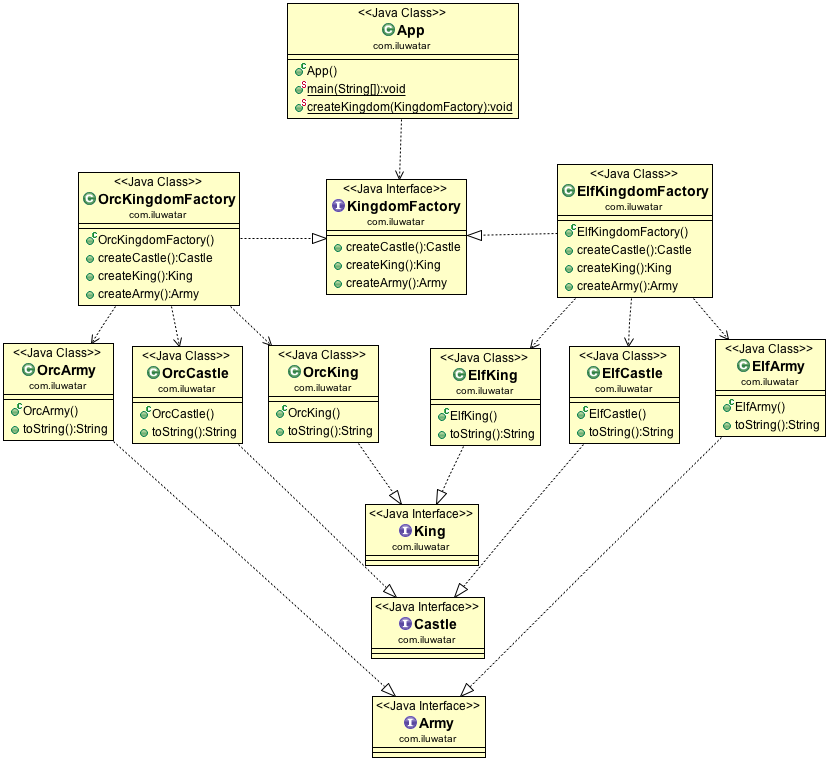| layout | title | folder | permalink | pumlid | categories | tags | |||
|---|---|---|---|---|---|---|---|---|---|
pattern |
Abstract Factory |
abstract-factory |
/patterns/abstract-factory/ |
PSZB3OD034NHLa81Czwd6sCC39gVxEUWT1_ssLmTtQLqgR5fM7sTmFGtaV6TZu8prd0r6HtQaMKqAZLk1XjT_E6qgPUZfyc0MdTgx0-8LuUn8ErFXdr98NypXxKyezKV |
Creational |
|
Kit
Provide an interface for creating families of related or dependent objects without specifying their concrete classes.
Use the Abstract Factory pattern when
- a system should be independent of how its products are created, composed and represented
- a system should be configured with one of multiple families of products
- a family of related product objects is designed to be used together, and you need to enforce this constraint
- you want to provide a class library of products, and you want to reveal just their interfaces, not their implementations
- the lifetime of the dependency is conceptually shorter than the lifetime of the consumer.
- you need a run-time value to construct a particular dependency
- you want to decide which product to call from a family at runtime.
- you need to supply one or more parameters only known at run-time before you can resolve a dependency.
- Selecting to call the appropriate implementation of FileSystemAcmeService or DatabaseAcmeService or NetworkAcmeService at runtime.
- Unit test case writing becomes much easier
- Dependency injection in java hides the service class dependencies that can lead to runtime errors that would have been caught at compile time.
